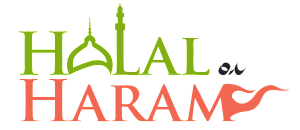By: Gillian Duncan
Christien Meindertsma, an artist based in the Netherlands, once set about tracing all of the products made using the parts of one animal.
Three years later, in 2009, she published a book called Pig 05049 that proved pieces of one pig, the 05049 of the title, ended up in 185 separate products, from toothpaste to dough improver and desserts. The pig is an animal considered haram, or not to be consumed, by Muslims.
Industry specialists say Meindertsma’s book offers a lesson for everyone about how the processing of products has changed in the globalised world – and why it is important to know what is in the food we eat and items we use.
Halal, which means permissible, not only covers food and drink, but anything that can be used in daily life, including drugs and cosmetics.
The size of the halal industry globally is enormous – worth an estimated US$2.1 trillion (Dh7.71tn) annually and growing.
Yet the UAE’s industry is tiny in comparison, at just $550 million. However, it has a proportionally bigger share of halal trade, which was estimated to be $3.6 billion in 2010 and projected to grow to $8.4bn in 2020.
Initially, halal referred to meat that had been slaughtered according to Islamic law, by a Muslim saying a prayer. It then expanded to cover ready-to-eat food containing meat and, finally, all other products.
However, awareness about what is halal is lacking in some parts, according to Asad Sajjad, the chief executive and secretary general of the Halal Development Council and the founder and director of the International Halal Federation.
Mohammed Jinna, the chief executive of Halal India, says halal should cover everything.
“Your toothpaste and your soap and your creams and your lipsticks – everything should be halal.”
But even food one might expect to be halal by its nature is not necessarily permitted.
Take sugar, for example, a plant-based product that is processed using bone char, charcoal made from animal bones – usually from cattle or pigs. If it is the latter, the end product will not be halal.
And even meat that is permitted, such as chicken, is sometimes not halal. In some big industrial chicken plants, the birds are fed proteins and injected with water to make them gain weight.
“The protein is used so that water retains in the body. Otherwise it will just drain out. The protein is made of pig,” says Mr Sajjad.
In the Emirates, there are a handful of big halal food producers, such as Emirates Poultry and Al Islami. But the largest halal food producers are based in the West.
Take Nestlé, headquartered in Switzerland. It is not only the world’s biggest food company – it is also the world’s largest halal food maker.
In fact, 85 per cent of the products in the $2.1tn halal market – which makes up 20 per cent of the total global food industry – are produced in Brazil, the United States, Canada, Argentina, France, Australia, Holland and New Zealand, says Mr Sajjad.
“These are the countries in the West. In the East, the biggest halal producer is Thailand,” which is not even a Muslim country, he points out.
In fact, the only Muslim countries that produce halal food in any significant quantities are Indonesia and Malaysia.
“I have been to Asia and the Middle East and I try to convince them to compete in the non-Muslim countries, and they say, ‘we can’t compete because the quality is not there,’” says Farhan Tufail, the chief executive of Halal Certification Services, based in Switzerland.
But, he adds, some foreign companies, such as Nestlé, are investing heavily in halal production in Muslim countries and for a simple reason: the halal market is booming and the companies want to be prepared. They can buy the ingredients to produce halal food cheaper in the Middle East than in the West.
But industry specialists say awareness about halal in the UAE and the region is not as widespread as some might expect.
“Here, if you go to any store in the UAE and ask, ‘Do you have halal biscuits? Do you have halal confectionery?’ they don’t know. The people selling food have no awareness. The buyers have no awareness,” says Mr Sajjad.
But that is changing.
The UAE has in recent months sought to boost its influence in the halal food industry and was appointed late last year to chair the Halal Food Technical committee designed to set standards for the industry worldwide.
The Emirates Authority for Standardization and Metrology is now working on guidelines to unify standards for halal food and cosmetics, which are expected to be applied in 57 Islamic countries in the next three years.
Despite the current furore over horse meat labelled as beef in Europe, a certification system is key to boosting consumer confidence in halal products, say the experts.
“You can find a lot of sugar being certified in Singapore and Malaysia. There is a lot of awareness in these countries,” says Mr Jinna.
Regulations for halal certification bodies in the UAE are being drawn up and are expected to be issued in the next six months.
They will be compulsory for any organisation wanting to become a halal certification body.
If they comply with the rules they will be accredited.
Only with the implementation of a comprehensive certification system will people be sure about whether the products they are using and consuming are halal.
MV Editors note:
Please share this extremely important article with all your Muslim family + friends to help increase knowledge and awareness.
May Allah reward you for your efforts in helping other Muslims avoid that which is haram.
![]()
